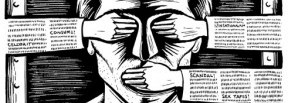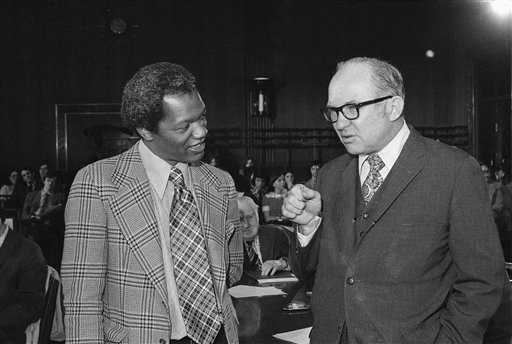Reporters Privilege
The idea behind reporter's privilege is that journalists have a limited right to not be forced in revealing information or confidential news sources in court. Mostly all state and federal courts have found that state and federal constitutions provide a qualified privilege to allow journalists to keep the names of their confidential sources and the unpublished information provided private. Reporter's Privilege
As a reporter it is important to clearly establish the terms of your relationship with the source. It is necessary for you to ask yourself:
- Can you publish or broadcast the information?
- Can you identify that person by their name?
- Can you disclose certain information about that person?
- Can you identify the source at all?
Journalists prefer to use sources named "on the record" whenever it is possible. Sometimes they must rely on unidentified sources which are the people whose identity are only known by the reporter or the outlet. This is ruled this way because those sources would otherwise refuse to speak to a reporter due to fear of them being retaliated against. They tend to fear their family's and their own safety, that they would be fired, or that they would be rejected by their community.
A reporter's promise in keeping a source's identity secrete does not mean much of anything if that reporter could be forced to identify the source. That is why forty-nine states have these laws or judicial rulings that protect reporters from being forced to testify about sources or the information they reveal. What are some of these state to state guides to the reporter's privilege.
Some states that have absolute privilege and shield law:
- Washington DC
- California
- Nevada
- Arizona
- Alabama
- Ney York
- North Dakota
- Colorado
- Texas
- Louisiana
- Arkansas
- Oklahoma
- Utah
- Idaho
- Iowa
- Maryland
- Mississippi
- Virginia
- Wyoming
In the first three years after Branzburg v. Hayes, eighty- six federal shield laws were introduced in Congress, but none were passed, because there were divisions within the news industry on what a reporter’s privilege should in-fact look like. A series of cases resulting in jail time or major fines for contempt of court for journalists who unsuccessfully fought against subpoenas reignited the movement for a federal shield law in the 21st century. Most of these 21st-century efforts passed the House of Representatives but failed to achieve that success in the Senate.
Cases:
- In 2001, Vanessa Leggett, a Houston-based author writing a book about a local murder, spent 168 days in jail because she would not identify sources or give her notes to law enforcement.
- In 2005, New York Times reporter Judith Miller was sentenced to jail because she refused to reveal who told her that Valerie Plame was an undercover CIA agent – even though she never published this fact. She served 85 days.
- Freelance videographer Josh Wolf spent 226 days in jail because he refused to provide a video that he recorded while covering an anarchist protest in San Francisco in July of 2005 to law enforcement.
Why is reporter's privilege important?
First, it has been integral to the reporting of several major news stories that have revealed corruption and wrongdoings at all levels of government.
For instance: in 2005, reporting by the Washington Post and others using confidential sources revealed the existence of secret U.S. prisons overseas where foreigners were kept and tortured in violation of U.S. and international law.
Second, the reporter's privilege is integral to journalists' independence. This ensures that journalists remain free from government control.
Third, the reporter's privilege ensures that journalists can do their jobs. Everyday that is spent testifying in court is a day that a reporter is not gathering and publishing news that informs the public.
So reporter's privilege is very important for both the reporter and the sources.



Comments
Post a Comment